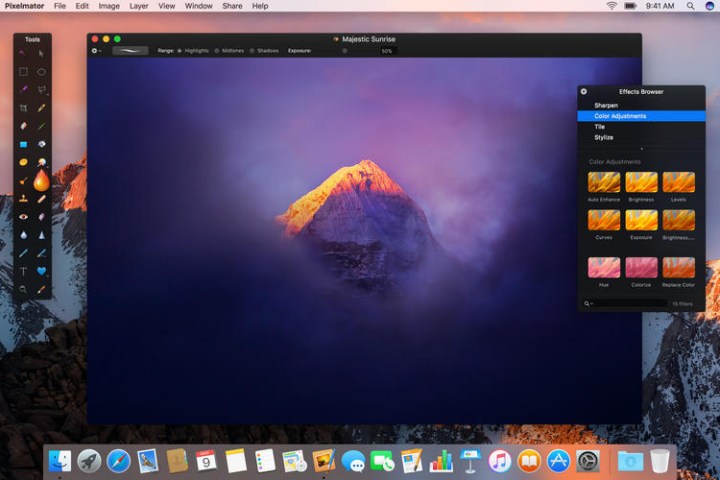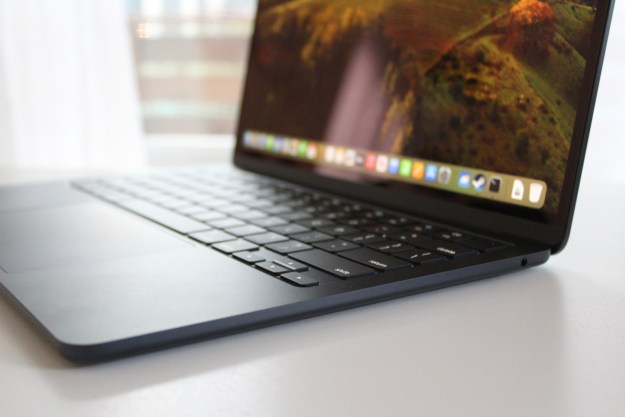
One such app is Pixelmator, the popular graphics editing application for MacOS, which has received a rather significant update to version 3.6. In addition to a number of other enhancements, Pixelmator now supports the Touch Bar for even more fluid interactivity, 9to5Mac reports.
Pixelmator’s Touch Bar support is aimed at exposing the tools most often used by creative types, and at making deeper options readily available when performing specific tasks. Options include the color palettes, selection refinements, and a number of other task-specific functions. The Touch Bar can also be customized in Pixelmator 3.6 to provide even more personalization.
Pixelmator’s developers used color in their Touch Bar icons, something Apple does not recommend. However, 9to5Mac suggests users will be aided by what is on the screen being more in line with what is being shown on the Touch Bar, a logical argument.
Beyond the Touch Bar integration, Pixelmator received a number of other improvements. The application works more fluidly with MacOS Sierra, supporting functionality such as snapping windows. In addition, Sierra’s Universal Clipboard is supported to enable Pixelmator for Mac and iOS to more directly exchange data.
MacOS Sierra’s new Tabs functionality is also supported. Pixelmator can now open multiple canvases at once in a single tabbed window and layers can be dragged and dropped from one tab to another, avoiding the splash of windows that made working in older versions less efficient.
Other improvements include support for wide-color displays, such as the Retina iMac and the 2016 MacBook Pro. A Smart Refine toggle has been added that makes cutouts more precise through the use of context-sensitive edge detection and texture-recognition algorithms. Finally, a live view preview has been enabled for Quick Selection and the application will smooth superimpositions when an area is copied into another image.
You can pick up Pixelmator at the Mac App Store for $30 while existing users can update to version 3.6 for free. The MacOS version can work closely with the iOS versions, which can be picked up in its own App Store for $5.
Editors' Recommendations
- MacBook Pro OLED: Here’s everything we know so far
- These 6 tweaks take MacBooks from great to nearly perfect
- The biggest threat to the MacBook this year might come from Apple itself
- Which color MacBook should you buy? Here’s how to pick
- Why you should buy a MacBook Air instead of a MacBook Pro


